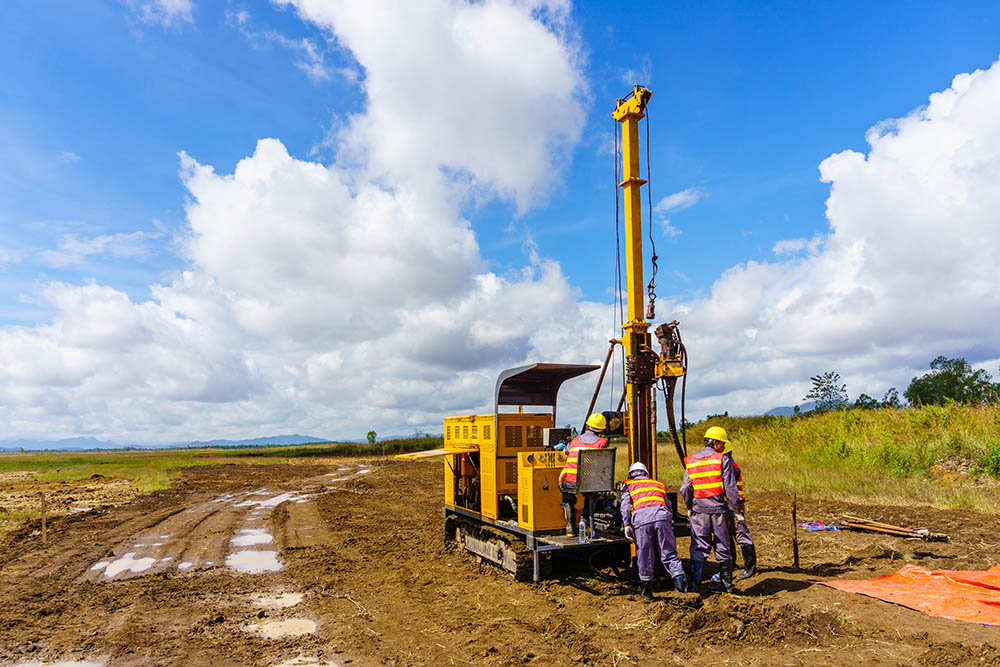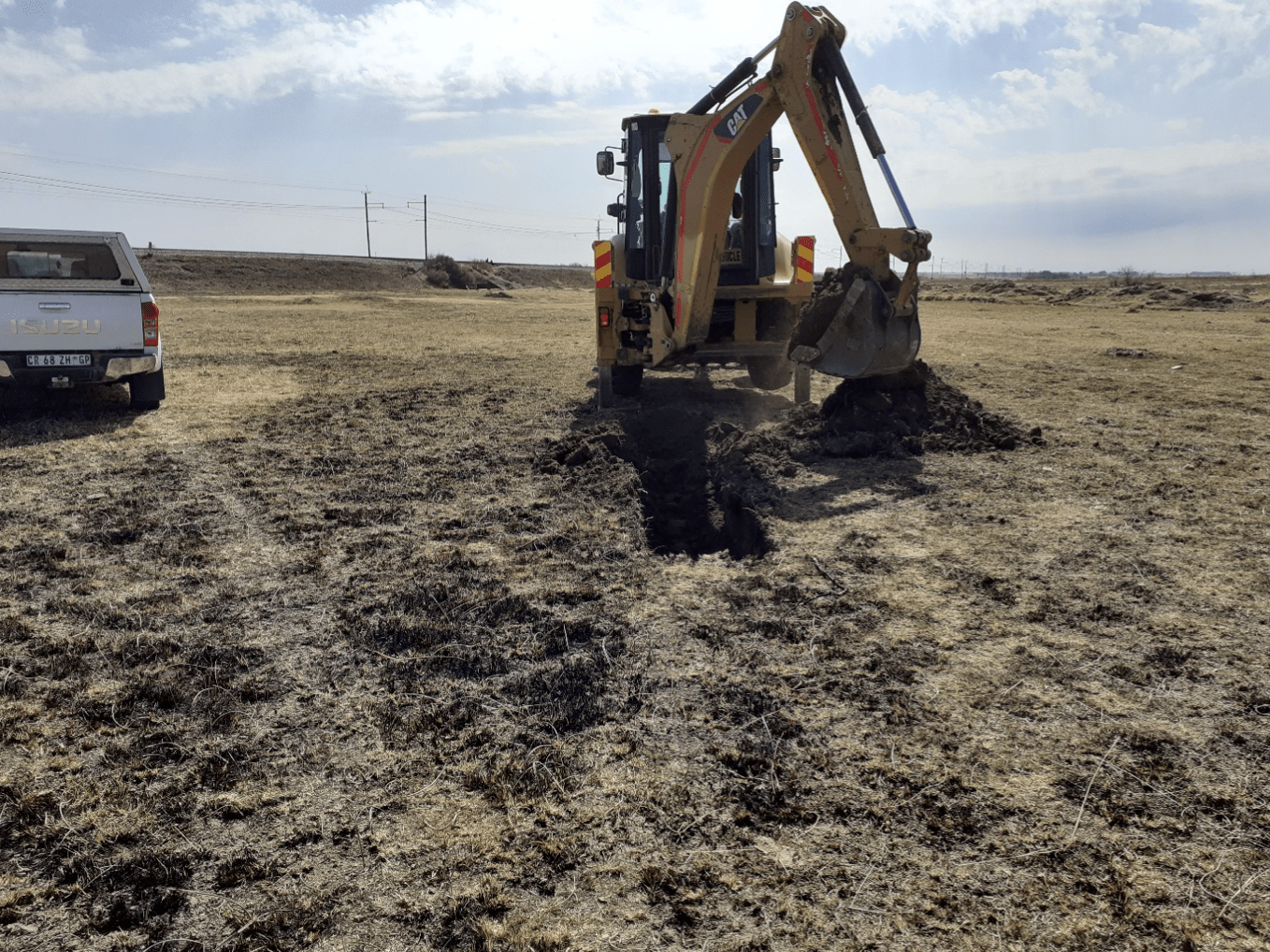How a Geotechnical Specialist Can Guarantee the Success of Your Structure Foundations
How a Geotechnical Specialist Can Guarantee the Success of Your Structure Foundations
Blog Article
The Importance of Geotechnical Design in Addressing Ecological Challenges and Enhancing Building Security
Geotechnical design acts as a keystone in the junction of environmental stewardship and building safety and security, providing vital understandings right into the actions of soil and rock under numerous conditions. This technique not just addresses pushing environmental obstacles such as soil disintegration and groundwater protection but additionally enhances the toughness of facilities versus all-natural risks. By executing critical site investigations and customized mitigation measures, geotechnical engineers play an essential role in protecting both human lives and ecological integrity. The intricacies of these obstacles increase essential concerns concerning the future instructions of this area and its ramifications for lasting growth.

Function of Geotechnical Design
Geotechnical design plays an important role in the style and building of framework by addressing the behavior of soil and rock materials under numerous conditions. This area of design is crucial for comprehending the interaction between frameworks and the ground, which includes establishing the load-bearing capacity of soil, examining stability, and forecasting possible negotiation or failing.
Geotechnical engineers are accountable for conducting site examinations, which entail sampling and screening dirt and rock to gather information on their chemical and physical residential or commercial properties. This info is essential for creating structures, maintaining walls, and other earth-retaining frameworks that guarantee security and durability. Geotechnical design educates the choice of appropriate building and construction techniques and products, thereby minimizing dangers linked with dirt habits.
Additionally, the assimilation of geotechnical engineering concepts into city planning and ecological administration is vital for resolving difficulties such as ground contamination and groundwater administration. By recognizing geotechnical factors, engineers can establish lasting services that enhance the resilience of framework against all-natural dangers, while likewise promoting ecological stewardship. Eventually, the duty of geotechnical engineering is indispensable for accomplishing risk-free, resilient, and ecologically aware building and construction methods.
Soil Disintegration Mitigation
Soil erosion postures a considerable hazard to both environmental security and infrastructure stability, influencing roughly 24 billion tons of productive dirt shed each year worldwide. This sensation is exacerbated by aspects such as deforestation, urbanization, and bad agricultural practices. Geotechnical engineering plays an essential duty in establishing effective soil erosion mitigation approaches that secure both the environment and construction jobs.
One technique entails the implementation of erosion control methods such as plants growing, which supports dirt through origin systems. Furthermore, the building of maintaining walls and balconies can properly reduce surface drainage and safeguard susceptible areas from erosion. Correct drainage design is also vital; it lessens water build-up and guides excess drainage away from crucial structures.
Moreover, geotechnical designers use dirt stabilization strategies, such as the application of geotextiles and naturally degradable mats, to boost soil communication and avoid deterioration - about geotechnical engineering. Regular surveillance and assessment of erosion-prone sites allow prompt interventions, ensuring long-term sustainability. By integrating these approaches, geotechnical design not only reduces the influences of soil disintegration however likewise adds to the resilience of facilities versus ecological difficulties, ultimately promoting a safer and more sustainable developed setting
Groundwater Protection Approaches
Groundwater functions as a crucial resource for alcohol consumption water, agriculture, and commercial processes, making its protection essential for ecological sustainability and public wellness. Efficient click for info groundwater security approaches are essential in minimizing contamination threats and ensuring the longevity of this resource.

Routine monitoring of groundwater quality is additionally important, allowing early discovery of contamination sources and promoting prompt removal initiatives. Employing innovative modern technologies, such as geophysical surveys and remote picking up, help in identifying possible dangers to groundwater books.
Moreover, public education and learning and stakeholder interaction are crucial, fostering neighborhood support for groundwater protection initiatives. geotechnical companies in south africa. By integrating regulatory actions, technical improvements, and area participation, we can develop a thorough structure that safeguards groundwater resources while promoting lasting development and construction methods
Landslide Threat Administration
Landslides posture considerable hazards to both human security and facilities, making reliable risk monitoring approaches necessary. Geotechnical engineering plays a critical duty in identifying, examining, and mitigating landslide risks. A detailed understanding of slope security, soil mechanics, and hydrology is important for developing reliable threat monitoring strategies.
The initial step in landslide danger monitoring includes thorough website investigations, which consist of geological mapping and soil testing. These investigations help designers review the capacity for landslides by recognizing vital elements such as slope angles, dirt composition, and water web content. Making use of innovative modern technologies such as remote noticing and geophysical surveys can boost the precision of these analyses.
As soon as dangers are determined, ideal reduction measures can be applied. These might include design remedies such as preserving walls, drain systems, and incline stablizing techniques. Keeping track of systems need to be established to find indicators of ground activity and modifications in water degrees, enabling for positive interventions.

Enhancing Building And Construction Safety And Security
Construction websites typically provide a myriad of dangers that can threaten worker security and job honesty. Geotechnical engineering plays an important function in boosting construction safety and security by giving important insights right into subsurface problems. With detailed dirt and rock evaluation, geotechnical designers can identify prospective risks, such as dirt instability, groundwater problems, and seismic vulnerabilities, which might jeopardize the security of construction tasks.
Implementing geotechnical services, such as proper foundation style and the use of preserving structures, minimizes these threats considerably. These solutions not only make certain the stability of the structures being constructed however also develop a much safer working environment for building workers.
Moreover, promoting a culture of safety via training and adherence to developed safety and security methods better improves building site security. By incorporating geotechnical experience right into the planning and execution phases, construction projects can attain greater safety and security standards, eventually safeguarding workers and making sure successful job completion.
Final Thought
In conclusion, geotechnical engineering offers as a critical self-control in advertising and tackling environmental challenges building and visit site construction safety and security. Via efficient dirt erosion reduction, groundwater protection approaches, and landslide threat administration, geotechnical engineers add to the advancement of durable framework.
Geotechnical design offers as a foundation in the junction of ecological stewardship and building and construction safety and security, offering essential insights right into the behavior of soil and rock under numerous conditions. Geotechnical engineering educates the choice of proper building and construction techniques and materials, consequently minimizing threats connected with soil habits.
Geotechnical design plays a critical role in establishing efficient dirt erosion mitigation approaches that safeguard both the setting and construction projects.
Moreover, geotechnical engineers employ soil stabilization techniques, such as the application of geotextiles and biodegradable floor coverings, to improve dirt communication and prevent degradation. Via comprehensive dirt and rock analysis, geotechnical designers can identify potential risks, such as dirt instability, groundwater issues, and seismic vulnerabilities, which may jeopardize the security of building and construction tasks.
Report this page